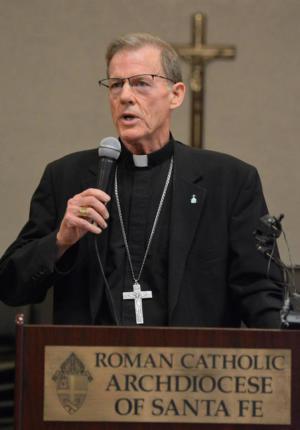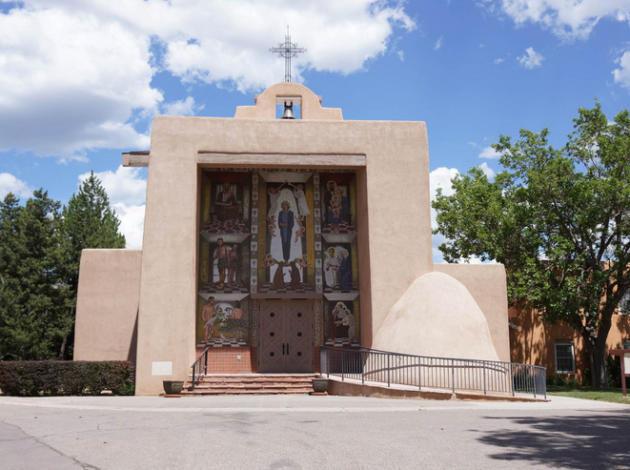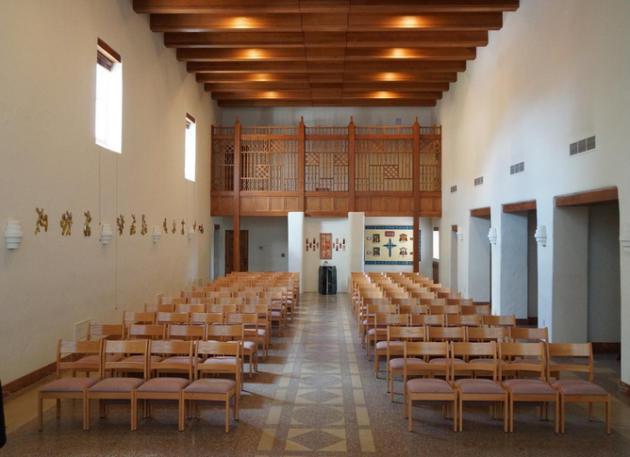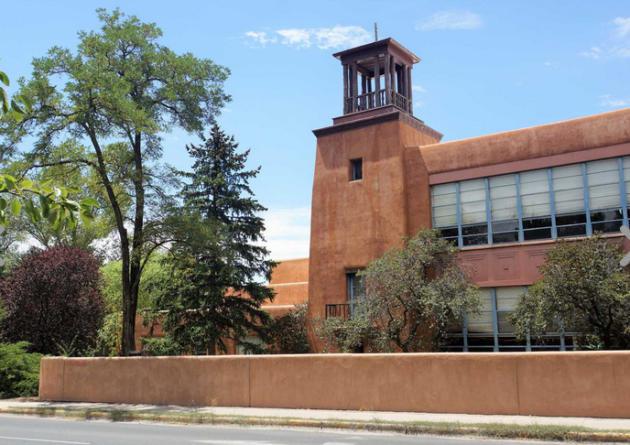|
Abuse survivors call trusts ‘fraudulent'
By Colleen Heild
Survivors of clergy sexual abuse are seeking permission from a federal bankruptcy judge to file lawsuits alleging the Archdiocese of Santa Fe engaged in a “massive and fraudulent” scheme to divert up to $246 million in assets to avoid bigger payouts to hundreds of victims. The request comes as efforts to mediate a resolution have stalled in the 18-month-old Chapter 11 bankruptcy reorganization of the state’s largest Catholic archdiocese. “Rather than fulfilling its fiduciary duty to maximize the assets of the estate for the benefit of creditors, the Archdiocese of Santa Fe’s primary goal is to protect the asset protection scheme it designed and implemented to put its assets out of the reach of the Survivors,” victims’ lawyers said in a court filing. Archdiocese attorneys deny any fraud in setting up two trusts in 2013 to hold millions of dollars in real estate and cash. They say the trusts support the “religious, charitable and educational purposes” of its 94 parishes, the archdiocese and related entities. The archdiocese calls the fraud allegations “unfounded” and says millions would be needlessly spent on attorney fees if the claimants were allowed to file the lawsuits. Because the case is in Bankruptcy Court, Judge David T. Thuma would have to allow the lawsuits to be filed. Lawyers for parishes say that could be devastating. Alex Myers, a Denver attorney representing the parishes, told the judge at an Aug. 28 hearing that if the victims get the green light to sue over the trusts’ assets, “It would unleash chaos. As soon as these complaints are filed, each one of these parishes, each one of these parishioners at these parishes is going to be impacted.” Discovery into the real estate and personal property records of each parish would commence, as well as the use of the property, Myers said. “What will be lost if (the creditors committee) gets their way, is parish communities decimated and the Catholic Church in northern New Mexico will not just be substantially burdened, but will be in many ways, eliminated,” Myers said. There would be “a substantial burden on those individuals’ rights to free exercise (of religion),” Myers told the judge. He said Thuma is being asked to ignore church autonomy issues and additional constitutional protections afforded religious parishes. Properties not selling The issue now before Thuma arises at a time when the parties are “very substantially apart” in reaching a settlement of claims despite four mediations and two mediators, said a victims’ attorney during the Aug. 28 hearing. Archdiocese lawyers in late 2018 said they hoped the reorganization could be resolved by this year, but attorneys for the 374 victims who are claimants in the bankruptcy say the archdiocese is dragging its feet. “Can you please use the court’s power in the Archdiocese of Santa Fe bankruptcy case to try and help the victims get closure,” one unidentified person asked Thuma in a letter filed in the case in June. The archdiocese is among 25 archdioceses and religious orders nationwide that have filed for bankruptcy protection since 2004 to stem financial losses from clergy abuse claims. Of those, the Santa Fe Archdiocese reorganization ranks among the largest in the number of victim claimants. So far, the largest bankruptcy settlement involving an archdiocese came in 2018, when the Minneapolis-St. Paul archdiocese paid $210 million to about 450 victims after more than three years of negotiations. While insurance carriers may foot much of the ultimate bill in New Mexico, the archdiocese says it has been moving to sell real estate and other properties to help pay for deductibles, co-pays and claims that aren’t covered by insurance. Archdiocese attorney Ford Elsaesser told the bankruptcy judge at last month’s hearing that his clients want to return to the mediation process and are “actively selling properties” being offered by various parishes to resolve the case. Some of the real estate is adjacent to the parishes, he said. Those properties are not among those held in the trusts. “The point of this is not to tell you that the parishes don’t get that they are involved and to solve this problem they are going to have to sacrifice,” Rob Charles, a Tucson attorney for the parishes, told Thuma. “They’re selling property; the (victims) committee knows that.” Included in the property up for sale is the old St. Francis Cathedral School in Santa Fe, listed at $3.6 million, and the Immaculate Heart of Mary Retreat and Conference Center in Santa Fe, listed at $7.8 million. James Stang, a Los Angeles lawyer for victims who have filed claims, countered, “Those properties are not moving the way we hoped they would. I don’t think … during the course of this case, a single property has actually sold. Not one.” “We think that it is critical to the ultimate negotiation of the plan that the issue of property of the (archdiocese) estate be determined.” Attorneys in the case declined Journal requests for comment last week. Restructuring of assets Faced with more than three dozen legal claims alleging sexual abuse by clergy, the archdiocese filed for bankruptcy in 2018. But victims attorneys say preparations for the filing began years earlier. As part of a restructuring initiated by the Archdiocese of Santa Fe beginning in 2012, most of the archdiocese’s financial and real estate assets were transferred to two trusts that are now controlled by Archbishop John C. Wester, victims’ attorneys allege. In filing for bankruptcy reorganization, the archdiocese has reported owning $49 million, of which about $31 million represents real estate. Adding the millions in cash and properties the archdiocese placed into the trusts could “quintuple the estate’s assets,” victims’ attorneys say in court filings. They are asking for the authority to file litigation against the two trusts, certain parishes, and the archdiocese. Allegations that church assets were moved to keep them “beyond the reach of creditors” have surfaced in other church bankruptcy cases. For instance, the Archdiocese of Milwaukee transferred $57 million to a cemetery trust several years before filing for reorganization in 2007. Victims seeking to recoup that money in a bankruptcy settlement won a favorable federal appeals court decision. But in the end, the 330 victims in the case received a total of $21 million after negotiations. In New Mexico, victims’ attorneys say the archdiocese restructuring “was based on similar restructurings of other dioceses within the United States, which were all done in response to escalating sexual abuse claims and extended limitation periods for the Survivors to bring suit.” But the archdiocese in court filings has said that decision to incorporate parishes and create the two trusts were part of a “decade-long continual process to improve the structure of the archdiocese and the parishes.” The archdiocese contends the trust assets are being held for its parishes, and fall outside the bankruptcy action. “The Archdiocese affirmatively states that no assets of the Archdiocese were transferred to the Parishes, to the Real Estate Trust or the Deposit and Loan Fund.” But victims’ attorneys in one court filing cited a deposition of a former archdiocese property manager, who said the restructuring was meant “to protect the assets of the archdiocese.” They have asked the archdiocese for information about the Deposit and Loan Fund trust – one of the two that were set up – including requesting the names of the 10 parishes holding the largest purported beneficial interests in that trust and their account balances. To date, that information hasn’t been provided, said the victims’ attorneys said. “Here, tens, if not hundreds, of millions of dollars of value are at issue,” their filing says, noting that more than $246 million of asset transfers are at stake based on archdiocese valuations. ‘Epicenter’ of sex abuse New Mexico has been described by one survivors’ attorney as the “epicenter” for clergy sexual abuse in the U.S. Catholic Church. Over the years, the archdiocese and its insurance carriers have paid an estimated $52 million to nearly 300 victims in confidential out-of-court settlements. Two decades ago, the archdiocese typically denied the allegations of abuse and cover-ups by church leaders. But more recently, under Archbishop John C. Wester, who came to New Mexico in 2015, the church has taken a more conciliatory tone and has published the names of 79 clergy and other religious members who have been credibly accused. “Victims come first,” Wester said in announcing the bankruptcy petition filed in late 2018. “I deeply apologize for the pain that they’ve experienced, and the church wishes to reach out to them in any way we can. This certainly is a very important way to offer financial compensation.” After the nearly four-hour hearing Aug. 28 on whether creditors can file suit, Thuma said he would probably rule in 30 days. But he cautioned that his decision would likely be appealed, and that could postpone a final court ruling for years. Stang responded that Thuma’s decision could help determine the outcome of the negotiations. “These men and women (survivors) have waited, in some cases, decades for accountability that they expect as a result of this Chapter 11 case. If they have to wait two more years, that’s OK. Now does that mean they won’t compromise if the law is going against them, no. Everyone has their own individual needs, but on a very macro perspective, they’ve been waiting a lifetime.”
|
.
Any original material on these pages is copyright © BishopAccountability.org 2004. Reproduce freely with attribution.



